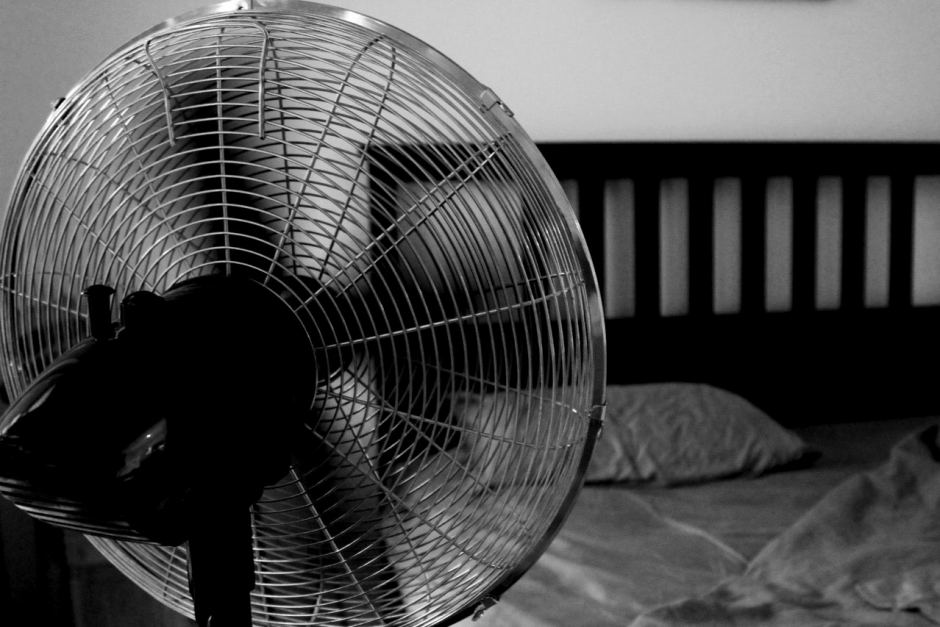Category: Weather / Solar Energy / Environment / Electricity Energy and Utilities
Will Queensland's power grid hold up against the heat?
Friday, 10 Feb 2017 09:11:11 | Jessica Hinchliffe

During a heatwave, people run fans and air con non-stop. (ABC Radio Sydney: Amanda Hoh)
With temperatures set to soar to over 40 degrees Celsius in many parts of Queensland over the weekend, questions are being asked about whether the power grid will be up to the task.
South Australia has experienced widespread power issues in recent months, and there are concerns that New South Wales and the ACT could experience blackouts today as the heatwave intensifies.
Peter Price, executive general manager of assets for Energy Queensland, said the Queensland energy grid had already been tested this year when peak demand hit 4,800 megawatts.
"The network worked really well through that peak demand on January 18," he said.
"We have the highest penetration of domestic solar PV [photovoltaics] in the world. On that day of peak demand, we also had 1,000 megawatts of solar generating during the middle of the day.
"I'm not expecting any problems in Queensland or south-east Queensland in coming days. I'm very confident the network will perform."
Mr Price said because the heatwave would impact Queensland over the weekend, there would be less commercial stress placed on the grid.
"It would be unusual for us to hit a peak demand on a Saturday or Sunday," he told ABC Radio Brisbane's Craig Zonca.
"We monitor the load routinely and we have a well developed emergency response plan and trained crews ready to respond."
Chris Stolz from Engineers Australia said the eastern states were often better off than South Australia when it came to power generation.
"We have a good network up and down the coast where the generating capacity and the demand is linked," he said.
Mr Stoltz said load shedding had also been used successfully in the past, when demand was high.
"Load shedding is turning off supply to certain industry or consumers," Mr Stolz said.
"We had a domestic example in South Australia a few years ago when they trialled turning air conditioners off in certain areas on a rotation basis.
"When demand was high, your air-con would go on for 10 minutes and then it would go off for someone else's to go on for 10 minutes."
Mr Stolz said businesses had even been paid in the past to turn off their power in times of high demand.
"That's how we can reduce the loading in times of high demand," he said.
- About Us
- |
- Terms of Use
- |
-
 RSS
RSS - |
- Privacy Policy
- |
- Contact Us
- |
- Shanghai Call Center: 962288
- |
- Tip-off hotline: 52920043
- 沪ICP证:沪ICP备05050403号-1
- |
- 互联网新闻信息服务许可证:31120180004
- |
- 网络视听许可证:0909346
- |
- 广播电视节目制作许可证:沪字第354号
- |
- 增值电信业务经营许可证:沪B2-20120012
Copyright © 1999- Shanghai Daily. All rights reserved.Preferably viewed with Internet Explorer 8 or newer browsers.




 Send to Kindle
Send to Kindle